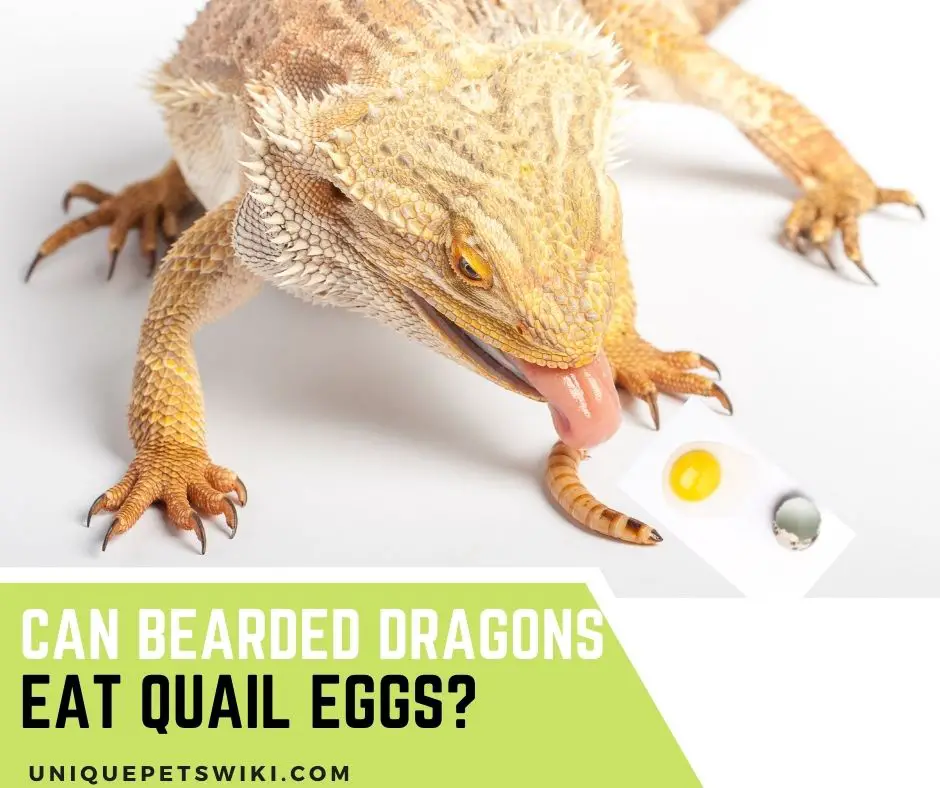What can bearded dragons eat? Can they eat quail eggs? Is it dangerous for them? Are there any benefits or risks in feeding them quail eggs? These are questions you ask if you have a bearded dragon.
If you want to make sure that your bearded dragons are safe to eat quail eggs, then you’ve surely come to the right place! In this article, we will be discussing if bearded dragons can eat quail eggs, what are the benefits, dangers, how often, and how to prepare quail eggs.
We will also talk about the best foods and the worst ones you can give to bearded dragons as a bonus!
This article has been reviewed by Dr. Dilber. Read more about our knowledge control process here.
Contents
Can Bearded Dragons Eat Quail Eggs?
Bearded dragons can eat quail eggs, or any egg for that matter on a moderate basis such as once or twice a week depending on the age of the beardie. But just be careful not to feed them any uncooked eggs, or egg shells as these can cause problems for their health.
Still, do not worry, quail eggs can be eaten by bearded dragons regardless of age but for a moderate amount, read more in the article to know more why.
Diet Of Bearded Dragons
The diet composition in terms of percentage of bearded dragons primarily depends on their age.
If we’re talking about a baby beardie which is around 0-4 months old, feeder insects such as dubia roaches and crickets should be at 80% and greens should be at 20%. The final stage, the adults should be at 20% insects, and 80% greens.
Are Quail Eggs Good Food For Bearded Dragons?
Yes, they’re not only good but also highly beneficial when taken in a moderate amount. Quail eggs have more protein content, and are smaller compared to regular eggs which means they’re easy to prepare, but high in nutrients.
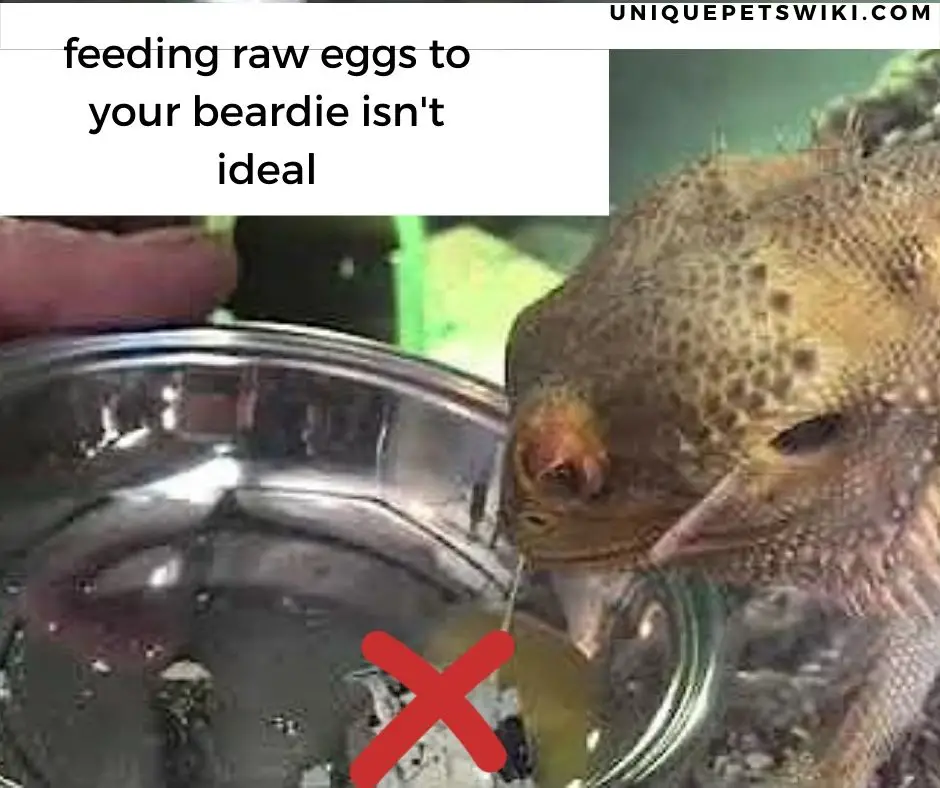
When Should Feed Bearded Dragons Eat Quail Eggs
There are no known consequences of a bearded dragon not eating quail eggs. Quail eggs offer high protein, but there are also better choices such as dubia roaches.
There are also several health risks when they eat too many eggs, quail eggs or not. These are diabetes, obesity, liver disease, and in the worst cases, heart failure, so keep these in mind whenever you’re feeding eggs to your bearded dragons.
To avoid any health risks and issues keep in mind that for baby beardies it is best to not feed more than one egg per week. And this should also have a significant gap of days.
How To Properly Prepare Quail Eggs For Bearded Dragons
Just like almost any other food to give to bearded dragons, there are certain preparations to ensure that your beardies are encouraged to eat without any health risk.
Instructions To Prepare Quail Eggs For Bearded Dragons
Quail eggs can be prepared easier, and are safer to feed to your bearded dragons.
Make sure that you do not give your bearded dragons any raw eggs or eggshells, as these can cause health risks and bacteria, and are generally bad for your bearded dragons. What you can do on the other hand is to boil the egg, or scramble it.
When scrambling the egg, please do not use any oil or even butter. You can crack it on a pan, mix it in a low setting, or just boil it then slice it into smaller pieces.
You could also mix it in a bowl, then microwave the egg if a microwave or oven is readily available. Place it under 1 minute and 30 seconds to 1 minute and 45 seconds.
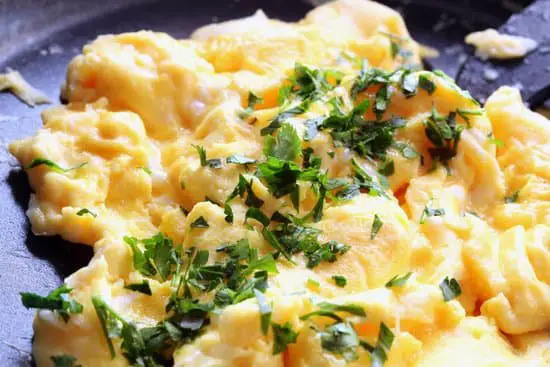
How To Feed A Bearded Dragon With Quail Eggs
After boiling or scrambling the quail egg, it shouldn’t be fed as is, quail eggs should be given alongside meal for your bearded dragon. It could be served along with a salad, or with other greens such as mustard greens.
Do not use salt, sugar, seasoning or any flavoring. Just offer the egg as a side dish or topping to their main course meal and that’s it!
Avoid combining with vegetables that contain high oxalates because it can prevent the absorption of calcium such as spinach. It is high in oxalate and prevents the absorption of nutrients.
How Much Quail Eggs Can A Bearded Dragon Eat?
This depends on what the age of the bearded dragon is. For babies it is recommended to feed them one quail egg every other week and for matured bearded dragons, they should only be fed one half quail egg per week.
What Foods Should And Shouldn’t Be Given To Bearded Dragons?
Unlike other reptiles, beardies can eat a wider and varied food, so feeding them isn’t really that hard. But of course there is the best and the worst food to give them.
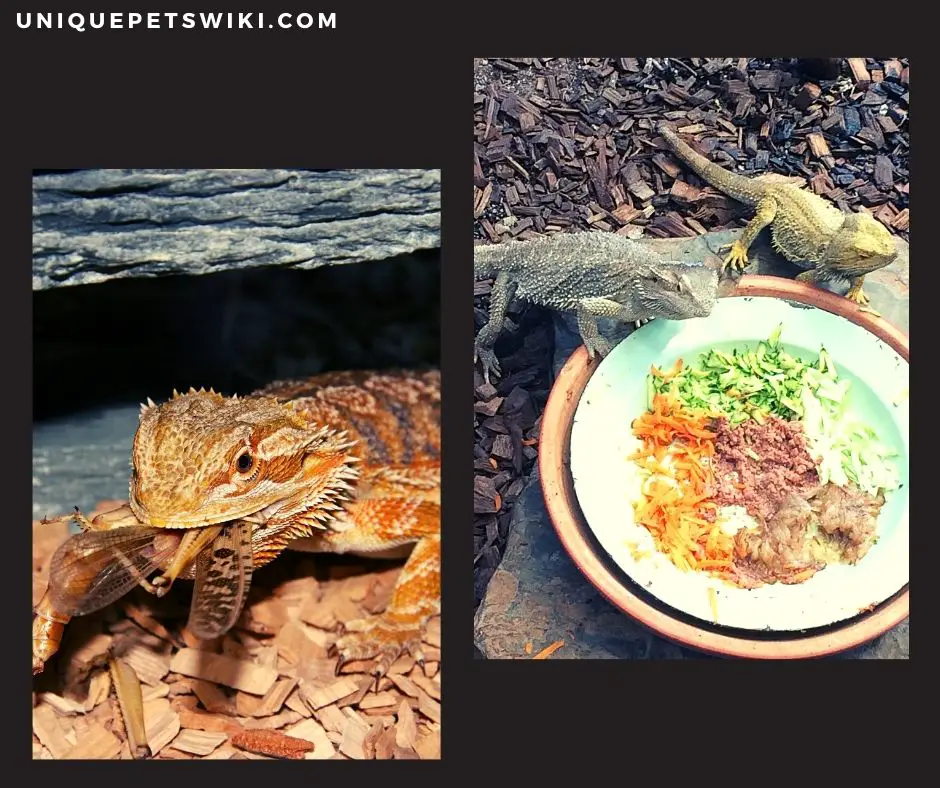
Best Foods For Bearded Dragons
Let’s cut to the chase, the best foods for bearded dragons are soft insects, and greens with a proper Calcium:Phosphorus Ratio. Here’s a short list for that:
Feeder Insects:
- Mealworms
- Dubia Roaches
- Crickets
- Earthworms
- Horn worms, waxworms, silkworms.
For greens:
- Kale (In moderation, every other week, served in salad)
- Pumpkin
- Spaghetti Squash
- Mustard Greens
- Dandelion Greens
- Strawberries (In moderation, every other week)
- Carrots
- Collard Greens
- Cabbage (Occasionally, twice a month)
- Okra
- Turnip greens
- Parsnips
- Broccoli
Note: Greens can be fed daily.
Fruits:
- Bananas (Occasionally, twice a month)
- Peaches
- Watermelon (Can be fed every other week)
- Blueberries (Occasionally, twice a month)
- Apples (These are the best)
- Tomatoes
- Grapes (served chopped)
- Raspberries (Occasionally, twice a month)
- Zucchini (Can be fed once a week)
- Cucumber (Peeled, can be fed once a week)
- Papaya, mango, grapes.
Worst Food To Avoid For Bearded Dragons
Here are the worst foods you can give to bearded dragons. Do avoid all of these and under no circumstance should these foods be fed.
These foods can cause health problems and complications and could result in irreversible damage, and even death of the bearded dragon.
Avoid giving your bearded dragons:
- Avocado (This is the most toxic)
- Citrus (These fruits bind calcium and can cause bone diseases)
- Fish (High in Protein)
- Processed meats
- Eggplants (Very low in nutrients)
- Fireflies
- Garlic
- Onions
- Spiders
- Ticks
- Pastries
- Other Dairy Products
- Chicken
- Beef
- Spinach
- Celery
- Tomatoes, Nuts, Oats
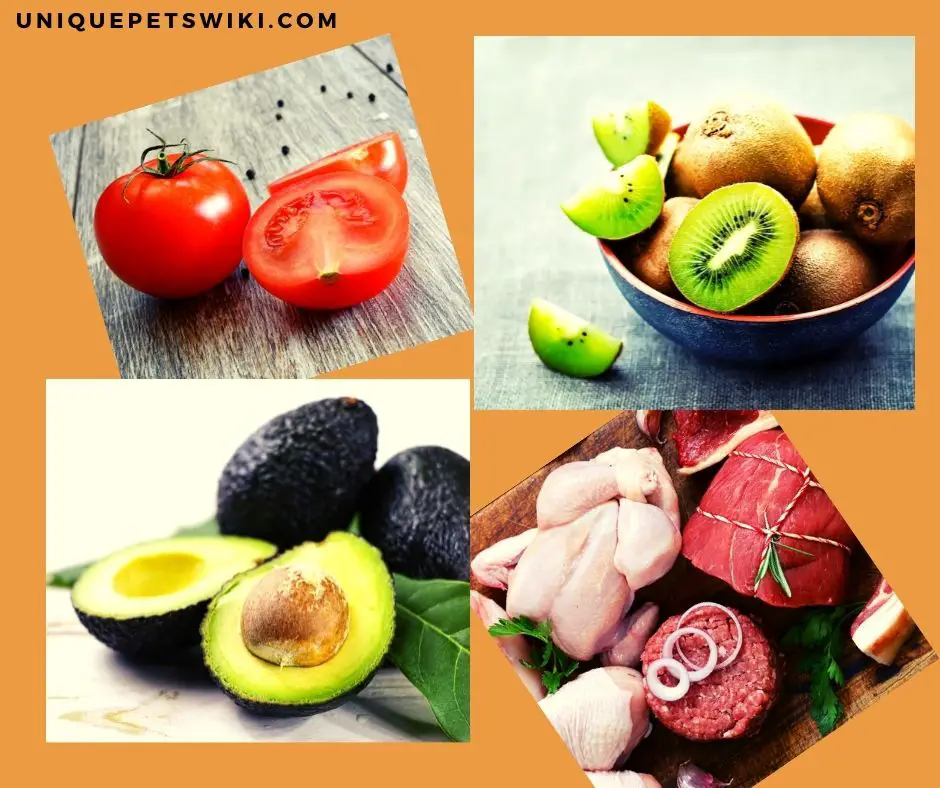
Bear in mind that Bearded Dragons require time to digest their food, and their food should be served in proportion to their age. What you feed them should be the same size as the distance between their eyes.
Last Sentences
Quail eggs can be added as a supplementary food alongside their main food of course, just keep in mind that quail eggs should always be fed in a moderate manner. And not on a daily or even weekly basis.
We hope that the information you found here in this article has proved to be helpful, and we also hope that your bearded dragons all grow up to be happy, and strong as you are too!
